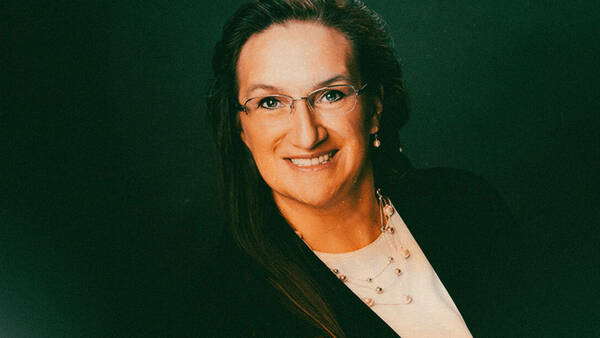After working in education for 24 years, Bonita Bradshaw ’77 had a pretty good sense for how to help children learn. But the approach she had seen in schools thus far wasn’t cutting it. So when she was invited to help start a school from the ground up, she readily accepted, recognizing the opportunity to empower students from underprivileged backgrounds.
A year later, the doors of Grace Hopper STEM Academy opened. The Inglewood, Calif. school started in 2013 to serve middle school girls after an FBI report revealed that the demographic was particularly vulnerable to sex trafficking in L.A. County. Two years later, the school, which is named for a pioneering computer scientist and U.S. Navy rear admiral, began educating boys on its second campus as it expanded its focus to serving students from under-resourced schools. It continues to prepare students for success by addressing their academic, emotional, and social needs through a holistic approach.
“It is our goal to embrace the whole child who comes before us,” says Bradshaw, who teaches and serves as the school’s director of special projects. “Even though their time with us is limited, we want them to feel safe, feel loved, and believe that they can dream and set realistic goals beyond their time with us. We believed that if we offered them a safe environment and all the tools and materials needed for success, they ultimately would succeed. And they did.”
The school offers a variety of services to address barriers to opportunity. In addition to providing transportation for 60% of its students, it also serves free breakfast and lunch.
And in order to meet the needs of its students, many of whom come from foster care families, Grace Hopper is adding a one-of-a-kind educational dormitory, Casa Ladera. The dormitory will be an extension of the school, offering 23 single-bed rooms located above the classrooms. Through the efforts of community-based organizations, each of the rooms will be fully furnished and when a child leaves, she will be able to take most of the items from the room home with her. Workers will then refurbish each room to prepare it for the next child. In addition, 24-hour wraparound mental health services will be available.
Grace Hopper also offers counseling, which Bradshaw says is crucial to reaching students and helping them thrive.
“We give our teachers crisis and trauma training because we don’t know what our kids deal with before they get to us,” Bradshaw says. “We offer counseling in a manner that is not just your typical school counselor who is checking on just your classes. The girls need counseling that checks on you, your being, and where you are.”
Now that the school has created a holistic counseling approach and established an atmosphere of positive reinforcement, Bradshaw says she has seen transformations in the character and academic performance of her students.
She has also witnessed the transformations that STEM learning can bring, by giving students the tools to succeed in career areas where women are typically the minority. Each grade tackles a different area, from coding to robotics to Project Lead the Way design and modeling. Bradshaw’s specialty is design and modeling, and her initial career upon leaving Notre Dame (as a member of one of the first graduating classes of women) was in aerospace. It was only after spending a number of years in the industry working as a technical illustrator that she found her true passion in teaching.
Though she didn’t predict she would become an educator, Bradshaw recognizes that it’s where she was being pulled all along. She recalls a conversation she had with Father Hesburgh while she was a student. After crossing paths with her at the Grotto, he asked what she would take with her when she left Notre Dame. Bradshaw decided to take the knowledge she had gained and share it with her community—and in particular, with young people.
That decision ultimately led her to pour hard work and dedication into Grace Hopper and Casa Ladera, and she is starting to see the fruit of that work. Early results give her hope that the school’s students will continue to succeed.
“I do this in hopes of ensuring that some of the youth that I touched can travel where I have been and go even further in life,” she says. “My greatest fulfillment to date might have been this past June, when the first class of our students who began with us in 2013 graduated as seniors from their high schools before heading off to college. I know we have a few Einsteins and Grace Hoppers among our alumni, and I can’t wait to see what they discover, develop, and become famous for.”



